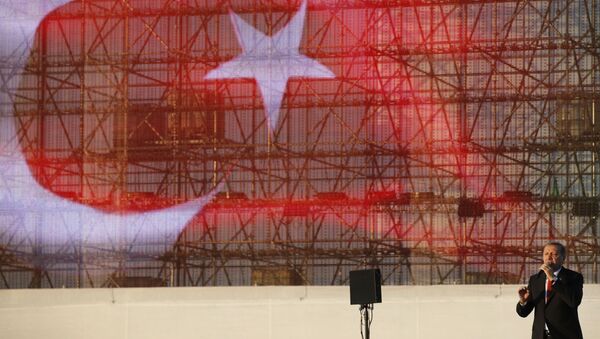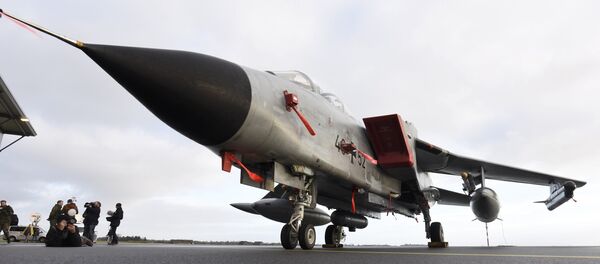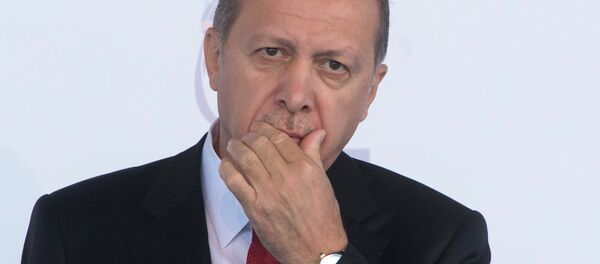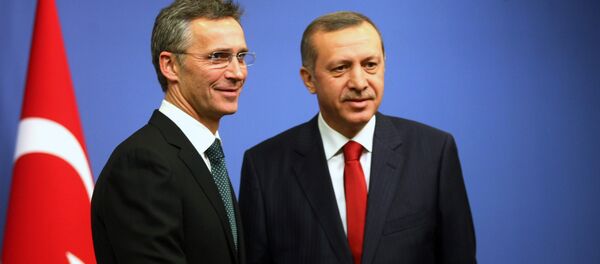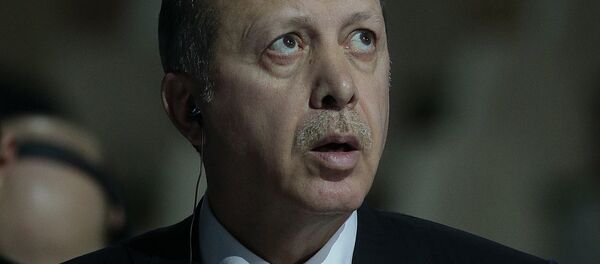The 98-kilometer stretch of the border is used by militants to transport fighters and smuggle oil from Syria. The Turkish Prime Minister explained that if the border is closed Ankara would not be able to accept refugees.
Davutoglu added that the Turkish budget could not afford the deployment of 30,000 troops to protect the border. The government also warned that closing the border may provoke Daesh to take "responsive measures."
Davutoglu’s words contradicted US State Secretary John Kerry’s statement made on December 2 following talks between President Barack Obama and Turkish leader Recep Tayyip Erdogan.
In turn, Russian Foreign Minister Sergei Lavrov said December 2 that Kurdish troops and US Special Operation forces could be deployed to close the border.
That makes a divergence. Either Ankara is continuing its game with Daesh and messing around with Moscow and Washington, or the US and Turkey are playing the same game and Ankara’s actions do not contradict the US’s strategic plan.
"Ankara’s statements prove that the Turkish government is in disarray," Stanislav Tarasov, a Russian expert on the Middle East, told Svobodnaya Pressa. "Erdogan says one thing, and Davutoglu says another."
At the same time, the US is really pressuring Turkey to close the border, he underscored.
"Recently the US State Department acknowledged that Daesh trades oil across the Syrian-Turkish border. This could mean that Washington is leaning toward Russia’s version and suspects Erdogan’s family of involvement in oil smuggling," the analyst explained.
"Of course, Turkey is one of the US’s allies in NATO, and Washington tries not to disavow the Turkish policy. But it keeps pressing to close the border," he added.
Nevertheless, Turkey still wants to impose its own scenario and is playing the Daesh card. "And it is losing the game," he said. "The border is likely to be closed from the Syrian side. Terrorists will be forced from the border zone with allied airstrikes."
"It is symptomatic of Turkey to be part of the anti-terrorist coalition and not to take part in such an operation," Tarasov said.
Thus, Turkey is likely to continue using Daesh to achieve its own geopolitical goals. Probably, it will let militants move from the border zone to Turkish territory to save them from airstrikes and then move them to Iraq.
"In fact, Turkey would support Daesh on two fronts – in Syria and Iraq," the analyst explained.
"Erdogan understands if Ankara takes a back seat to Moscow and Washington and closes the border it would be a serious blow to Turkey’s reputation. It is not about oil business, it is all about reputation," he said.
Moreover, Turkey is currently trying to show its military power as it is concerned about a coalition Russia, Greece, Armenia and Kurds are building against it, Fenenko added.
"As for Russia, we have means to respond to Turkey, and I’m talking about a military attack. Ankara realizes this, and tries to make Washington or London pledge their support for it," he concluded.
